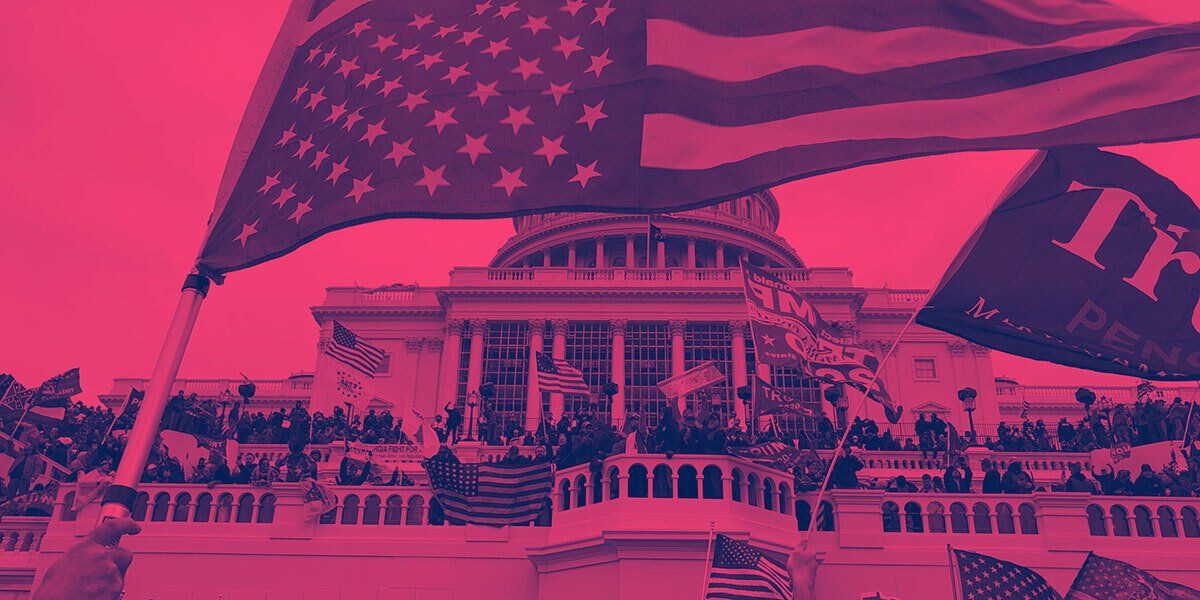American democracy is in crisis, says Eurasia Group President Ian Bremmer, largely because “one thing not in short supply this election season: conspiracy theories.”
Trust in institutions – from the Supreme Court to public schools – is at an all-time low, and only 44% of Americans have confidence in the honesty of elections. Distrust and election-related disinformation are leaving society vulnerable to conspiracy theories.
Historically, conspiracy theories have been most likely to crop up during times of social, political, or economic upheaval — times when people need to make sense of a chaotic situation. And US society is ripe for that today, with 70% of Americans saying they believe the nation is in crisis and at risk of failing.
We’re already seeing “the explosion of belief in things that aren’t so,” says Bremmer.
Case in point: A jury of his peers recently found former President Donald Trump guilty on all 34 counts of falsifying business records in the so-called hush money criminal case. Rather than settling the debate over Trump’s guilt or innocence, however, it has breathed life into old and new conspiracy theories.
Republicans said the verdict was evidence that the deep state had rigged the justice system – and the election – against Trump. In a new twist, a whopping 80% of them agreed the charges were filed against the former president at the direction of the White House.
Conspiracy theory mania, says Bremmer, is taking off thanks to “Trump actively campaigning on Joe Biden rigging the criminal justice system and the 2020 election, conspiracy-heavy Robert F Kennedy Jr. as the most popular third-party candidate in decades, huge numbers of bots promoting disinformation on social media, and algorithmic promotion of far left and right political extremes driving citizen-as-consumer attention.”
So conspiracy theories aren’t as fringe as they once were. They are taking root in the hearts and minds of our family members, colleagues, and friends. Critically, they are influencing political outcomes around the world.
That’s why GZERO is offering a deep dive into conspiracy theories, with an interactive experience entitled: The Disinformation Election: Will the wildfire of conspiracy theories impact the vote?
You can’t debunk these theories unless you understand what’s fueling them. Join us as we take you down the rabbit hole of some of the most influential conspiracy theories, from the Great Replacement Theory and the 2020 stolen election to the anti-vaccine movement and QAnon, to find the kernels of truth that help them spread like wildfire.
